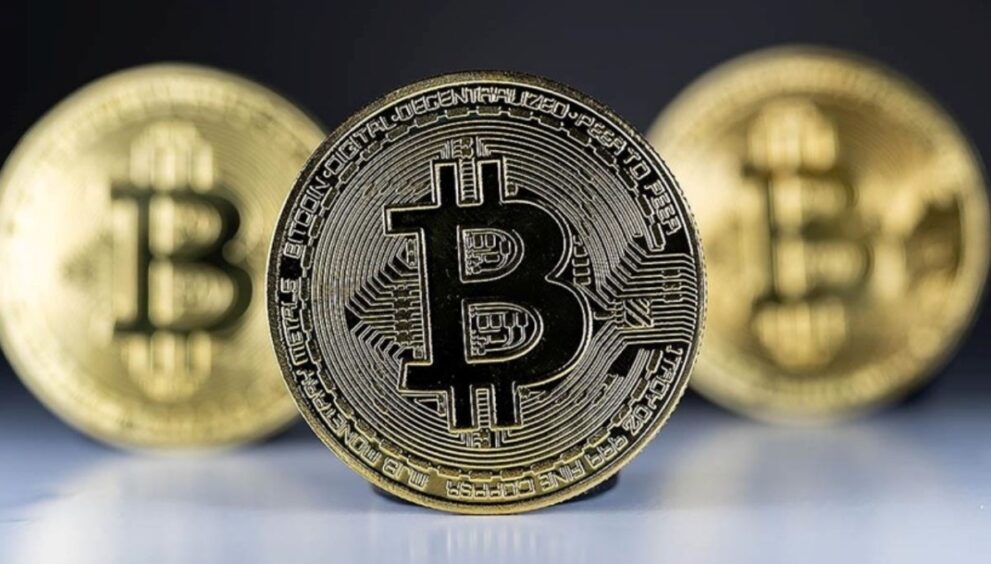Reason Behind the Decline Revealed: U.S. Crypto Reserve Move Didn’t Benefit Bitcoin

The U.S. government established the Strategic Bitcoin Reserve with seized Bitcoins. However, the markets were shaken by this announcement when they expected the government to actively purchase Bitcoin. Prices dropped by over $5,000, leading investors and industry experts to discuss the long-term impact of this move. On March 6, 2025, the U.S. government signed an executive order to create the Strategic Bitcoin Reserve (SBR). However, this development did not have the anticipated positive effect in the market, leading the price of Bitcoin to drop to $88,300 from $5,000, and by March 8, deepening the decline to $86,000 at 10:30 a.m. Turkish time. Crypto investor and Wolf of All Streets podcast host Scott Melker analyzed the price movement and long-term effects of the reserve.
Prior to the announcement of the Strategic Bitcoin Reserve, many investors were expecting the government to actively purchase Bitcoin from the market. Instead, it was announced that only seized Bitcoins would be retained. This caused a sharp drop in price as it did not align with investor expectations. Scott Melker viewed this development positively in the Wolf Den newsletter, referring to it as a success and describing Bitcoin’s recognition as a strategic asset by the U.S. as the “biggest step for the U.S. in terms of Bitcoin.” According to Melker, the U.S. cannot afford to fall behind China in terms of Bitcoin reserves, and this move will trigger a competition that will increase Bitcoin demand on a global scale.
Melker assessed the short-term price decline in Bitcoin, stating that this movement was a result of “liquidation of leveraged positions triggered by major news in a low-liquidity market.” He believes that large investors will see this decline as a buying opportunity, leading to an eventual price increase.
Following the disclosure of the details of the Strategic Bitcoin Reserve, mixed reactions were seen in the crypto community. In particular, the decision of the government to only retain seized assets instead of purchasing Bitcoin was met with disappointment by some investors. Jeff Park from Bitwise Invest criticized the executive order, saying, “It was not a strategic move, it was a big pump-and-dump operation, and I am happy it is over.”
On the other hand, crypto supporters generally positively evaluated this decision. Senator Lummis expressed support for the initiative despite not being put into effect. However, she criticized the lack of involvement of Congress in the process.
A Bitcoin investor known as “Bitcoin Therapist” on social media platform X described this executive order as “the most optimistic news seen in the last four years.” According to him, the U.S. taking this step will accelerate the long-term global acceptance of Bitcoin.
The U.S. government recognizing Bitcoin as a strategic asset and establishing a reserve consisting of seized Bitcoins resonated in the global finance world. Ryan Rasmussen, Head of Research at Bitwise Asset Management, stated that this move will accelerate the adoption of Bitcoin, increase its legitimacy, and alleviate fears of government pressure.
On March 7, Rasmussen expressed that the U.S. Bitcoin reserve could lead to profound changes in the global financial system. He mentioned that this move by the U.S. will create a ripple effect and push other governments, financial institutions, and investment funds to create similar Bitcoin reserves.
Rasmussen suggested that establishing a Bitcoin reserve would gain international recognition and that other countries would begin to accumulate BTC. He argued that the U.S. officially recognizing Bitcoin as a strategic asset would pave the way for other states to adopt it, thereby integrating Bitcoin more deeply into the global financial system.
Additionally, Rasmussen believes that there will be a significant change in the financial sector as well. The U.S. government holding Bitcoin could serve as a reference point for wealth managers, retirement funds, and financial institutions. Due to regulatory uncertainties, which have caused these institutions to be cautious about Bitcoin so far, there are indications that their interest in the crypto market may increase with the government’s move.
Given the possibility that the U.S. could sell its Bitcoin holdings causing price instability, some investors in the market are concerned. However, Rasmussen argues that the government will continue to accumulate Bitcoin and this will increase confidence in the asset in the long run. He also emphasizes that the likelihood of the U.S. banning Bitcoin is now “absolutely zero.”
Chief Investment Officer (CIO) of Bitwise, Matt Hougan, shares similar views with Rasmussen. Hougan predicts that if the U.S. recognizes Bitcoin as a strategic asset, other countries will follow suit and a global competition for Bitcoin reserves will begin.
In March 4 statement, Hougan mentioned that countries like El Salvador, Bhutan, and Abu Dhabi already purchased Bitcoin and many nations are monitoring this process closely. He pointed out the inevitability of forming a global Bitcoin reserve trend by asking, “If you are Honduras, Mexico or Guatemala and see that the U.S. has now purchased Bitcoin along with El Salvador, can you really continue down your path with zero Bitcoin?” Trump’s Strategic Move
U.S. President Donald Trump signed a presidential decree on March 6, establishing a Strategic Bitcoin Reserve using the government’s crypto assets. White House crypto czar and investor David Sacks announced that the reserve would be made up of seized Bitcoins through criminal and legal asset forfeiture cases.
Sacks, in a statement on X, confirmed that the government would not initially purchase additional Bitcoin but would leave the door open for future acquisitions. He noted that the U.S. government currently holds approximately 200,000 Bitcoins worth $17.9 billion.
In a statement by the White House, the Departments of Commerce and Treasury were authorized to develop new strategies to acquire more Bitcoin as long as it doesn’t pose additional costs to American taxpayers.
A New Era Begins
The creation of the Bitcoin reserve by the U.S. was met with mixed reactions in the market. While some investors viewed the government’s decision not to purchase Bitcoin directly as a disappointment, many industry experts believe that this move will have quite positive long-term effects.
With this development, it became evidently clear that Bitcoin is beginning to be accepted as a strategic asset not only for individual and institutional investors but also for governments. This step taken by the U.S. could fundamentally change the role of Bitcoin in the global economy and lead other countries to adopt similar policies.






















































































































































































































































































































































































































































































































































































































































































































































































































































































































































































































































































































































































































































































































































































































































































































































































































































































































































































































































































































































































































































































































































































































































































































































































































































































































































































































































































































































